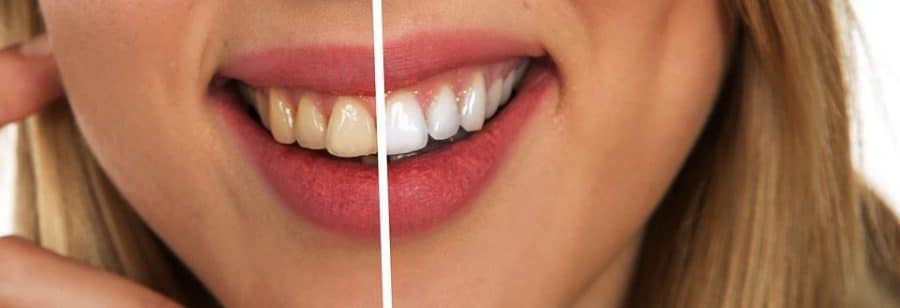A healthy, radiant smile is a testament to good oral hygiene. It reflects overall well-being. As the gateway to our digestive system, teeth play a vital role in our daily lives, from nourishing our bodies to expressing joy through a confident smile.
Maintaining healthy teeth goes beyond brushing. It encompasses a holistic approach to oral care. That said, we will explore many tips on keeping your teeth healthy, covering everything from proper oral hygiene practices to lifestyle choices that contribute to a vibrant and lasting smile.
Regular Dental Check-ups
While these tips contribute significantly to maintaining healthy teeth, regular dental check-ups are irreplaceable. Schedule dental appointments at least twice yearly for professional cleanings and thorough examinations. Your dentist can treat tooth infections and other dental problems you need help with. They can also detect and address issues early, preventing them from escalating into more significant problems.
Regular check-ups also allow you to discuss any concerns or changes in your oral health with your dentist. Early detection of dental issues allows for prompt and effective intervention, ensuring your smile remains healthy and radiant.
Commit to a Consistent Oral Hygiene Routine
The cornerstone of dental health lies in a disciplined and consistent oral hygiene routine. Twice-daily brushing is non-negotiable for maintaining healthy teeth. Use fluoride and soft-bristled toothpaste to clean your teeth, gums, and tongue thoroughly. Brushing removes plaque, stimulates the gums, and helps maintain optimal oral health.
Flossing is equally imperative as it reaches areas between the teeth that a toothbrush might miss. Dental floss or interdental brushes can effectively remove plaque and debris. Consider adding an antimicrobial or fluoride mouthwash to your routine to enhance protection against harmful bacteria.
To maximize the effectiveness of your oral hygiene routine, replace your toothbrush every three to four months or sooner if the bristles are frayed. Additionally, regular dental check-ups should be part of your routine, providing professional cleaning and early detection of potential issues.
Choose the Right Tools for the Job
Selecting the right dental tools can significantly impact the success of your oral hygiene routine. Opt for a toothbrush with a size and shape that allows you to reach all areas of your mouth comfortably. Electric toothbrushes are highly effective at removing plaque and can be particularly helpful for individuals with dexterity issues.
For flossing, choose a method that suits your preference – traditional dental floss, interdental brushes, or water flossers. Water flossers use water to clean between teeth and along the gumline, offering a gentle yet effective alternative to traditional flossing.
Stay Hydrated with Water
Water is vital for overall health and plays a significant role in oral hygiene. Water helps rinse away food particles, acids, and bacteria that can lead to tooth decay. It also promotes saliva production, which aids in neutralizing acids and maintaining a healthy balance in the mouth.
Make water your beverage of choice throughout the day, and consider increasing your intake, especially after consuming acidic or sugary foods. Not only does staying hydrated benefit your teeth, but it also supports your overall health and well-being.
Kick the Tobacco Habit
Smoking and using tobacco products have severe consequences for oral health. They contribute to stained teeth, gum disease, and an increased risk of oral cancers. Quitting tobacco is one of the most impactful steps to improve your dental health.
Find support from friends, family, or a cessation program to help you on your journey to a tobacco-free life. The benefits extend beyond your teeth. Your entire body will thank you for making this positive and life-changing decision.
Protect Your Teeth During Physical Activities
Protect your teeth with a mouthguard if you engage in sports or activities with a risk of dental injuries. Mouthguards act as a barrier, reducing the risk of broken, chipped, or knocked-out teeth during physical impact. Custom-fitted mouthguards, especially those recommended by dental professionals, offer the best protection and comfort.
Whether participating in contact sports like football or activities with a risk of falls, such as skateboarding, wearing a mouthguard is a proactive measure to safeguard your teeth from potential trauma.
Manage Stress to Avoid Teeth Grinding
Stress and anxiety can manifest in various ways, and one common consequence is teeth grinding more commonly known as bruxism. Grinding your teeth can result in significant dental issues, including worn enamel, jaw pain, and headaches. Practice stress management techniques such as deep breathing, meditation, or yoga to alleviate tension.
Additionally, wearing a night guard while sleeping can help protect your teeth if you grind them during the night. Night guards create a shield between the teeth, absorbing the pressure generated during grinding and preventing damage to your teeth and jaw joints.
Final Words
In conclusion, maintaining healthy teeth is a multifaceted endeavor involving good oral hygiene practices, a balanced diet, and lifestyle choices that prioritize your oral well-being. By incorporating these tips into your daily routine, you're taking proactive steps to ensure a radiant smile and optimal oral health for years.
Remember, your smile is an essential part of who you are, and investing time and effort into its care will pay off in the form of a confident, healthy grin. Embrace these tips as lifelong habits, and your teeth will thank you with a bright and vibrant smile reflecting oral health and your commitment to overall well-being.


